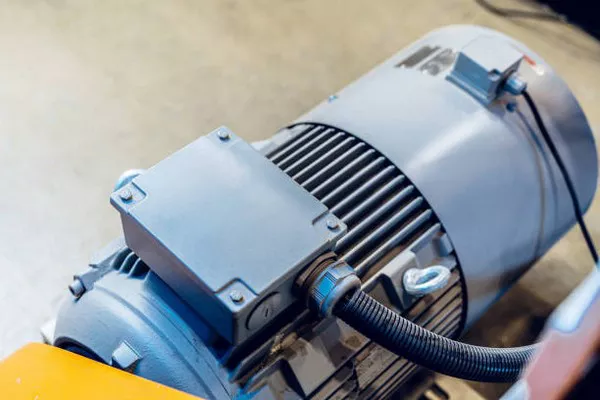Generators are invaluable devices that provide power during unexpected outages or at remote locations where electricity is not readily available. However, using generators in adverse weather conditions, such as rain, requires special precautions to ensure safety and optimal performance. In this article, we will discuss essential tips and guidelines for using generators in the rain, helping you navigate these challenging situations while safeguarding both your equipment and yourself.
Select the Right Generator
Before delving into the specifics of using generators in the rain, it is crucial to ensure you have the appropriate generator for your needs. Portable generators are commonly used for emergency power backup and outdoor events, and they come in various sizes and power capacities. Make sure your generator is rated for the intended workload and that it has been designed to withstand wet conditions.
Generators with an IP rating of at least IP44 are suitable for use in light to moderate rain, as they are designed to protect against water splashes and light rain. However, if you expect heavy rain or prolonged exposure to moisture, consider investing in a generator with a higher IP rating, such as IP55 or higher, for increased water resistance.
Create a Dry Shelter
To ensure the safety of both your generator and yourself, set up a dry shelter that provides cover from the rain. A dedicated generator enclosure or a simple pop-up canopy can be effective solutions. Ensure that the shelter is adequately anchored to prevent it from being blown away by strong winds.
Make sure the generator is positioned on a level surface within the shelter to prevent water from pooling around the unit. Avoid placing it directly on wet ground, as this can lead to electrical hazards.
Invest in an Appropriate Generator Cover
A generator cover is a smart investment that can keep your unit protected in wet conditions. These covers are designed to shield your generator from rain, dust, and other environmental elements, helping to extend the life of your equipment.
When selecting a generator cover, ensure that it is the right size for your unit and is made from a waterproof and durable material. Covers with UV protection will also help prevent sun damage, which can weaken the generator over time.
Elevate the Generator
Elevating your generator slightly can help prevent water from seeping into the unit. Place it on a raised platform or set it on a pallet to create an effective barrier against ground moisture. Be sure that the platform is stable and level to avoid any safety hazards.
Keep Ventilation Clear
Generators require proper ventilation for cooling and exhaust purposes. It is essential to keep these areas clear, especially when using the generator in rainy conditions. Make sure the air intake and exhaust ports are not obstructed by water, snow, debris, or the shelter itself. Clogged vents can lead to overheating and potential damage to the generator.
Protect Electrical Connections
Protecting the electrical connections of your generator is crucial to prevent electrical hazards. All connections should be shielded from rain and moisture to prevent short circuits and electrical shock. Here are some tips to safeguard these connections:
a. Use Weatherproof Outlets: Invest in weatherproof electrical outlets and plugs to ensure a secure and dry connection between the generator and your appliances.
b. Cover Extension Cords: Place extension cords in protective conduit or cover them with weatherproof enclosures to keep them dry.
c. Position the Generator Away from Puddles: Ensure that the generator and all electrical connections are located away from areas that may collect standing water or puddles.
d. Use a GFCI (Ground Fault Circuit Interrupter) Outlet: If possible, connect your generator to a GFCI outlet to provide an additional layer of protection against electrical faults.
Regular Maintenance
Regular maintenance is crucial to the long-term performance of your generator, especially if you frequently use it in adverse weather conditions. Here are some maintenance tips to keep your generator in optimal shape:
a. Check Oil and Fuel Levels: Regularly check the oil and fuel levels, and top them up as needed. Running a generator with insufficient oil or fuel can lead to damage or malfunction.
b. Inspect the Air Filter: The air filter should be checked and cleaned or replaced as necessary to maintain proper airflow and combustion.
c. Test the Generator: Periodically run the generator to ensure it starts without issues. This will help you identify any potential problems early.
d. Keep It Clean: Clean the generator’s exterior, vents, and engine components to prevent the buildup of dirt and debris that can impede performance.
e. Inspect the Electrical Connections: Check all electrical connections for signs of wear, corrosion, or damage. Replace any compromised parts promptly.
f. Store Properly: When not in use, store your generator in a dry and cool place. If possible, use a generator cover to protect it from dust and moisture.
Conclusion
Using generators in the rain can be a safe and effective way to ensure power availability during adverse weather conditions. By following these tips and guidelines, you can safeguard your generator, electrical connections, and personal safety while harnessing the power of this invaluable tool. Remember to select the right generator, create a dry shelter, invest in a generator cover, elevate the unit, keep ventilation clear, protect electrical connections, and perform regular maintenance. With these precautions in place, you can confidently use your generator in rainy weather, knowing that it will reliably serve your power needs.

